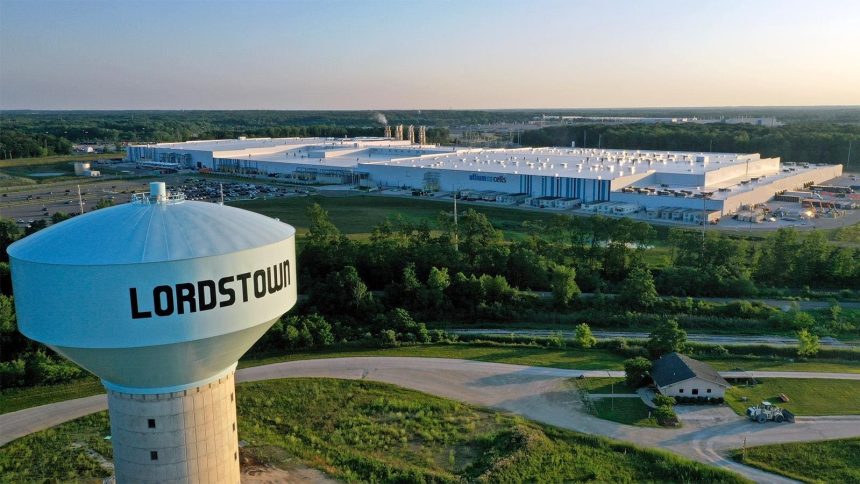The Inflation Reduction Act (IRA), a cornerstone of the Biden administration’s climate agenda, has already injected billions into clean energy initiatives, particularly battery technology, making its complete reversal by a Trump administration unlikely. A significant portion of the IRA’s $400 billion clean energy allocation, along with funds from the Bipartisan Infrastructure Law, has been disbursed as non-revocable loans and grants. This substantial investment, estimated at $110 billion for the battery industry alone, will continue to fuel the growth of the US battery sector regardless of Trump’s stance, fostering what experts are calling “the great U.S. battery boom.” While the influx of funds creates a strong foundation, the future of the American electric vehicle (EV) industry under a Trump presidency remains uncertain, with potential challenges arising from the elimination of EV tax credits and the imposition of tariffs on Chinese goods.
Trump’s proposed 60% tariffs on Chinese imports pose a significant threat to the burgeoning US EV market. Despite many EVs being assembled in the US, the industry remains heavily reliant on China for battery components and raw materials. These tariffs could drastically inflate EV production costs, potentially stalling sales and hindering the US’s ability to compete with China, the dominant global player in battery and EV production. This reliance on China for critical materials also extends beyond the automotive sector, affecting other clean energy technologies like solar panels and wind turbines, further complicating the US’s pursuit of energy independence and its efforts to combat climate change.
Recognizing the vulnerability associated with this dependence, the Biden administration strategically allocated IRA funds to bolster domestic production of battery materials. This proactive approach aimed to establish a secure and resilient supply chain within the US, reducing reliance on China for critical components. Investments have targeted the refining of lithium and graphite, as well as the production of anodes and cathodes, crucial battery components. While still in its early stages, this initiative holds significant promise for strengthening the US battery industry and securing its long-term competitiveness. This move aligns with broader national security concerns about access to vital resources, underscoring the strategic importance of establishing independent supply chains.
Driven by government incentives and the growing demand for EVs, major automakers like General Motors, Ford, Hyundai, Toyota, Honda, Stellantis, Rivian, Tesla, and Volvo, along with battery component companies like Redwood Materials, have committed to establishing approximately 40 new US-based EV and battery plants. These investments, amounting to billions of dollars, represent a substantial commitment to domestic manufacturing and signify a pivotal moment in the transition to electric mobility. Companies are capitalizing on the IRA funding, leveraging it to build new factories and accelerate the development of a robust domestic EV ecosystem. Many of these new facilities are strategically located in Republican-leaning states, aligning with Trump’s focus on revitalizing American manufacturing and creating domestic jobs, potentially mitigating some of the political opposition to the clean energy transition.
While financial incentives undoubtedly play a role, automakers are also driven by long-term strategic considerations. Investing in US-based manufacturing streamlines operations, reduces reliance on international supply chains, and ultimately enhances global competitiveness. Tesla’s experience serves as a compelling example. The company initially benefited from lower costs in China but is now facing increasing competition from Chinese rivals like BYD. This shift underscores the importance of diversifying manufacturing locations and building resilient, globally distributed supply chains. Furthermore, domestic production ensures closer proximity to the rapidly expanding US EV market, facilitating quicker response times to evolving consumer demands and market trends.
The future of the US EV industry hinges on a complex interplay of political and economic factors. Trump’s relationship with Elon Musk, a major beneficiary of EV subsidies and carbon reduction programs, adds another layer of uncertainty. Musk’s influence could potentially sway Trump’s policy decisions, but the extent of this influence remains unclear. Industry experts express hope that Musk will advocate for policies that support the continued growth of the EV sector. Simultaneously, the development of a domestic battery materials industry is crucial for long-term success. Companies like Redwood Materials, led by Tesla co-founder JB Straubel, are pioneering efforts to recycle battery materials and establish domestic production of key components. This initiative aims to reduce dependence on China and create a closed-loop system for battery production, further strengthening the US EV ecosystem. The success of this endeavor, along with continued government support, will be vital for securing the future of the US EV industry.



